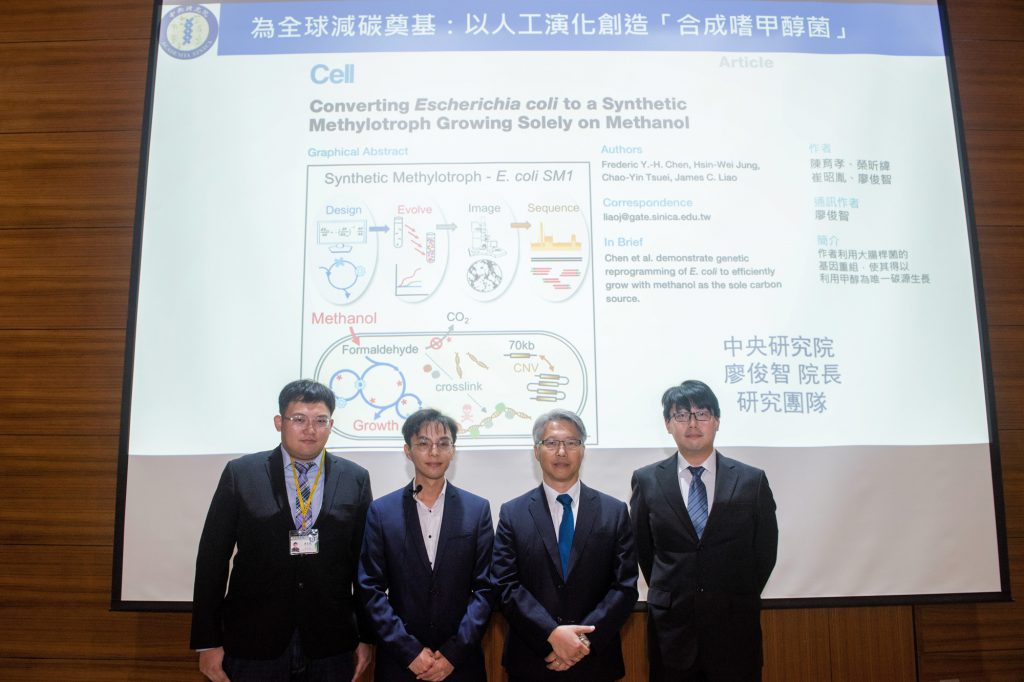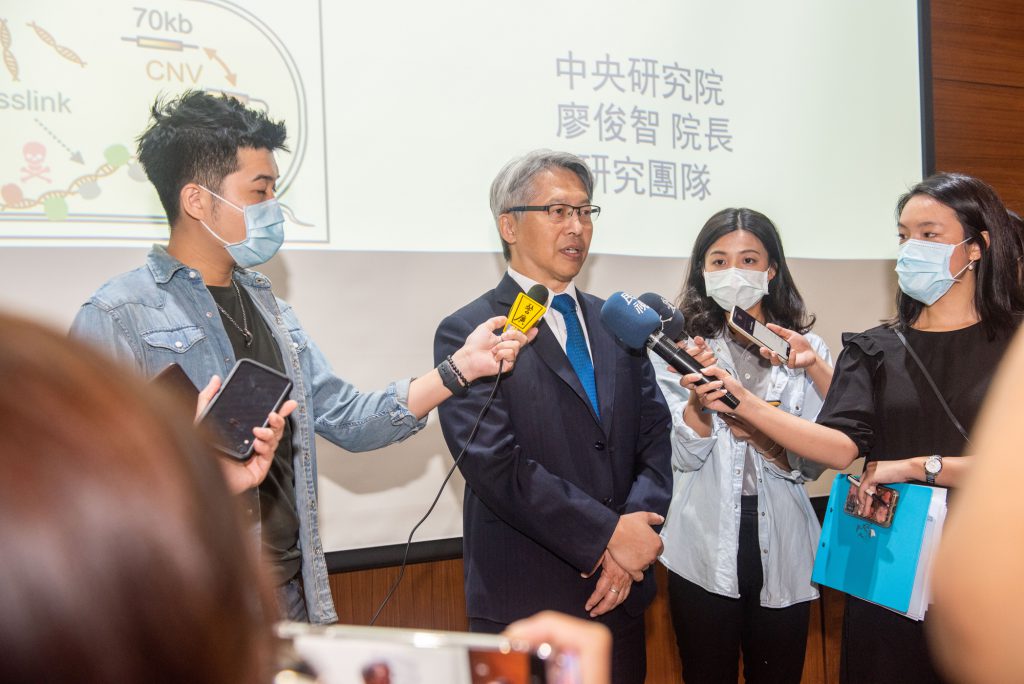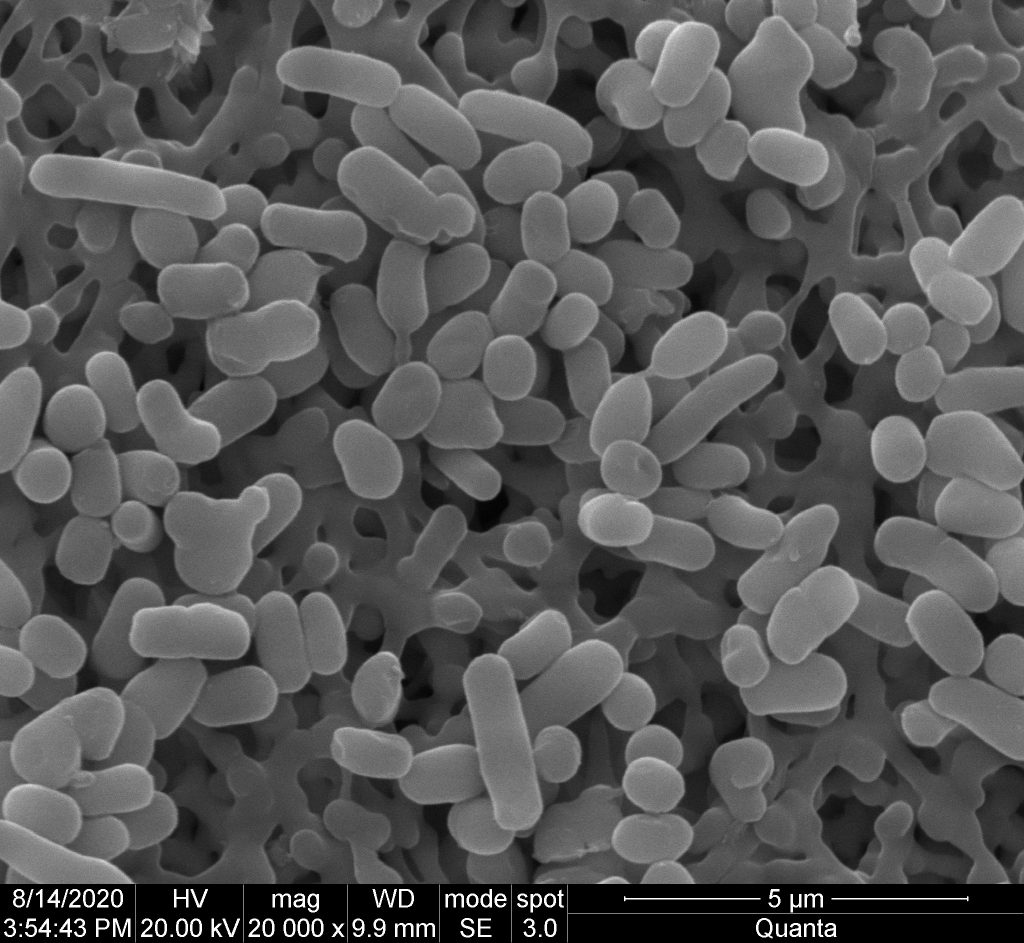Amidst the raging COVID-19 pandemic, the world remains under the unceasing threat of climate change. Academia Sinica President James C. Liao and his research team have successfully utilized laboratory evolution to isolate the first “synthetic methylotropic single strain”. Their research identified key enzymes with a unique metabolic calculation model and modified e. coli through gene editing. Synthetic methylotrophs can convert methanol into high value chemicals, medicines, and fuels, forming a carbon cycle with high green economic value that will be beneficial for carbon reduction in the future. Hailed as “the new benchmark for synthetic biology”, the team’s research article announcing this discovery was published in Cell on August 10.

President Liao said that the research team used electron microscopy, proteomics, and three different gene sequencing techniques to find the reasons why ordinary bacteria cannot absorb methanol. As President Liao explained, this is research done by Academia Sinica alone, since it requires an interdisciplinary team consisting of talented and passionate scholars skilled in integrating high-end technologies from various fields, while also making use of the powerful and comprehensive core facilities from Academia Sinica.
Synthetic methanol-utilizing bacteria is more than a scientific breakthrough; it also has commercial potential. Today’s chemical industry is limited to a few processes to deal with methanol, and it is difficult to meet environmentally friendly standards. Synthetic methylotrophs represent a perfect solution. Through genetic engineering, they can be used to produce chemicals relevant to daily life, such as raw materials, anti-cancer drugs, fuels, synthetic resins, and biodegradable plastics. In addition, they can replace carbohydrates with methanol as fermentation material to save carbohydrates for food resources. The possibilities are endless.

One of the most effective ways to combat global warming and reduce carbon emissions is to convert greenhouse gases (carbon dioxide, methane, etc.) into liquid methanol. Nevertheless, it is difficult to modify natural methylotrophs, and ordinary bacteria cannot absorb methanol. Therefore, the resulting key challenge lies in finding ways to transform methanol into other materials.
Over the past decade, research teams around the world have dedicated their efforts to studying the synthesis of artificial methylotrophsm but with few results. President Liao’s Academia Sinica team has achieved a major breakthrough, using e. coli to prove that it is feasible to transform bacteria into methylotrophs, and that the growth rate of synthetic methylotrophs is close to that of natural methylotrophs.
In addition, this research can contribute to other fields as well. While generally toxic to organisms, methanol can be used by methylotrophs. Through observing the mutations in bacteria evolution, President Liao’s team discovered that this bacterium avoids toxicity from methanol with genomic copy number variation (CNV), copying parts of its own genes, to regulate the efficiency of methanol usage. As genome copy number variation is common in cancer cells, this study may help enhance our understanding of gene copy number variation in biology and medicine.
President Liao’s area of expertise, synthetic biology, represents knowledge that combines biology and chemistry. Since 2005, his research achievements have been published in leading journals such as Nature and Science. By demonstrating the latest technologies in synthetic biology, this research realizes the expectation that science may turn pollution into gold.

The authors of the research paper are Dr. Frederic Y.-H. Chen, Dr. Hsin-Wei Jung, Mr. Chao-Yin Tsuei and president James C. Liao. The original article can be read online at journal website: https://www.cell.com/cell/fulltext/S0092-8674(20)30875-8. This discovery is also the second Academia Sinica research result published in Cell, a leading international journal, in recent months.
